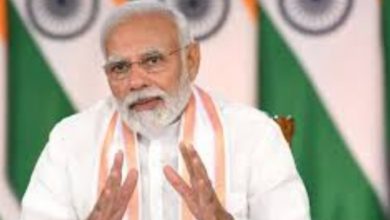Cracking down on peace: How Russian anti-war protesters face persecution

A law prohibiting the “discrediting the Russian Armed Forces” has been in force for a little more than a month now. Since then, courts across Russia have investigated more than 300 allegations. Criminal prosecutions have been brought in at least 21 cases. In some instances, the defendants had boerously called for peace and an end to the bloodshed in Ukraine, in others they held silent protests against the war.
“There is a police station that I always pass on my way to and from work. I have been doing so for the last year-and-a-half and no police officer has ever taken any notice of me. That was also the case for a month after I tied a green ribbon on my backpack,” says Alexei from Kazan, whose name has been changed at his request.
‘Symbol of an illegal protest’
Activs have been holding peace protests in various cities across Russia since the invasion of Ukraine. They display green ribbons in public squares, or wear them as a sign of silent protest against the war. Alexei was arrested in the center of Kazan, the capital of the semi-autonomous Russian Republic of Tatarstan. He says the green ribbon on his backpack was originally a sign of support for the fight against kidney cancer. But Alexei does not dispute that he was also showing solidarity with opponents of the Russian invasion of Ukraine.
“At the police station I witnessed a very interesting situation. The department head kept on calling someone to find out what I should be charged with. First, one report was drafted, then a second, and ultimately, everything was rewritten,” Alexei recalls. Finally, he was accused of undermining trust in the Russian Armed Forces “in the presence of citizens.” According to the report, Alexei was carrying a black backpack with a green ribbon — an illegal protest symbol.
More and more street arrests
A few days ago, Azat Sabirov and Irina Badertdinova were detained in Kazan. They had swapped supermarket price tags for anti-war slogans. For example, price tags on one shelf for coffee suddenly read: “The Russian army has bombarded the art school in in Mariupol. Some 400 people were trying to shelter from gunfire there.” Both are now also accused of “undermining trust in the Russian Armed Forces.” But neither their case, nor Alexei’s has been brought to trial yet.
In the meantime, people in Kazan have been reporting more and more detentions on the streets over the past few days. One citizen, who wishes to remain anonymous, says he was stopped because he was wearing a blue scarf and a yellow jacket — the colors of the Ukrainian flag. Another reported that she was arrested because she had put up anti-war flyers in public toilets. Another man still, says he was detained because he was carrying a bouquet of dried blue and yellow flowers.
“When the war began, I attended a vigil. Two police officers came up to me and we had a conversation. We didn’t share the same opinion but they did not try to convince me,” according to another man, who adds: “When I ended up at the police station a few weeks later, there was no more talk. They wrote a report and were pleased that they were going to get a special arrest bonus.” He says none of the police officers used the word “war,” but just talked about the Russian army’s “special operation” in Ukraine.
Raids and trials
Before the arrests started in Kazan, raids were carried out at the homes of journals, activs and students. There were three different waves on March 6, 17, and 25. Many of those affected complain they were the victims of police violence.
“During the raids there were dreadful insults, humiliation, threats and beatings to my head and back. I was put in handcuffs and forced to kneel for three or four hours. They threatened to strip my 69-year-old mother naked if I did not tell them where my cellphone was,” wrote activ Andrei Boyarshinov, who also lives in Kazan. He passed his report to journals; DW has attained a copy. Boyarshinov, who is now being held in custody in a prison, is accused authorities of having publicly called for terror acts. He rejects the allegations.
Three other Kazan residents, Marina Ionova, Timur Tuchvatullin and Ruslan Terentyev, are accused authorities of having organized mass unrest after the raids. The allegation is based on a post on the Telegram messaging app channel used the protest movement in Kazan. In it, a user nicknamed Mickey Mouse had called for violence at the protests. The post has disappeared in the meantime. The activs have not been detained as of yet and their lawyers say the allegations are trumped up. “I cannot say whether all these posts and articles are real. I have only seen one screen shot but it is unclear where it came from,” says Ruslan Ignatyev, a lawyer representing Timur Tuchvatullin.
The aim: to silence people
People living in other Russian regions — from Kaliningrad to Magadan — have similar stories to tell. Anti-war flyers, graffiti, clothing in the colors of the Ukrainian flag all discredit the Russian Armed Forces, according to police and judges.
“Such persecution is really happening en masse. People who criticize the military deployment more often and more loudly than others are implicated in different ways in ongoing proceedings. All of that, of course, is simply intended to intimidate. The authorities believe they can silence people with raids and criminal prosecutions,” says human rights lawyer Elsa Nizanbekova.
In most cases, people found guilty of “discrediting the operation of the Russian Armed Forces” are simply fined. But anyone found to have committed anti-war “crimes” again within a year of paying their fine can expect to face prison.This article was originally written in Russian





